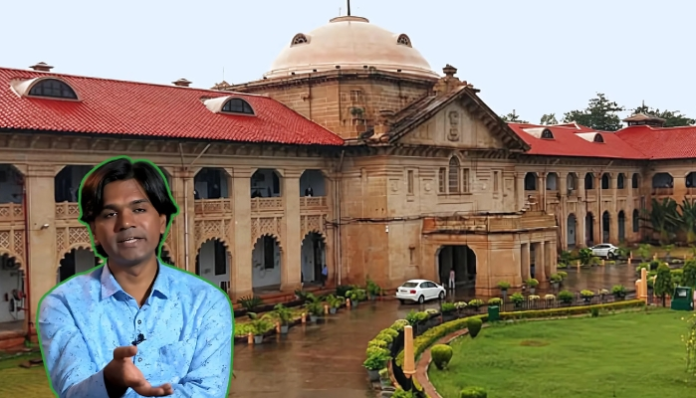The Allahabad High Court raised critical questions during the hearing of a case involving Mohammed Zubair, co-founder of propaganda portal Alt News, who faces an FIR for sharing a clip of Yati Narsinghanand on social media. The FIR, lodged based on a complaint from the Yati Narsinghanand Foundation, invoked several sections, including Section 152 of the Indian Penal Code, which pertains to acts endangering the unity and integrity of the nation.
During the proceedings, the court inquired why Section 152 should not be applied to Zubair, given the allegations of his actions threatening national unity. It also directed the government to submit its response on the matter.
The Additional Advocate General (AAG), representing the state, strongly criticised Zubair’s actions, arguing that his social media post caused substantial harm. The AAG stated, “The FIR clearly shows the damage caused by his conduct. It has created a threat to the sovereignty and integrity of the country.”
The AAG further contended that Zubair shared “half-baked information” on his X (formerly Twitter) post, failing to verify that Yati Narsinghanand had already been granted bail by the court.
Highlighting the issue of accountability, the AAG said Zubair’s lack of verification misled people. “He is tweeting that no action has been taken, while the court had already granted bail. Is this what he calls fact-checking? People trust him, and thousands are reposting his content,” the AAG stated, emphasising the widespread influence of Zubair’s social media activity.
The AAG argued that Zubair’s approach, which appeared to disregard key facts, undermines his credibility as a fact-checker and questioned whether this level of diligence was sufficient for someone in his position.
The controversy began when Mohammed Zubair shared a clip of Yati Narsinghanand, a controversial figure known for his provocative remarks, on social media. The post allegedly omitted key details, including the fact that Narsinghanand had been granted bail. This led to allegations that Zubair’s selective presentation of information was intended to incite tensions and tarnish reputations.
The FIR against Zubair includes charges under multiple sections, with the most serious being Section 152, which deals with actions that could threaten national unity.
The High Court has sought a detailed response from the government regarding the application of Section 152 in the FIR. The court’s queries indicate its intent to scrutinise whether the allegations against Zubair meet the stringent requirements of this section.
The case has reignited debates over the responsibilities of fact-checkers, the role of social media, and the boundaries of free speech. Critics argue that Zubair’s work as a fact-checker is vital for combating misinformation, while others believe greater accountability is necessary for those wielding significant influence on social media.



















Comments